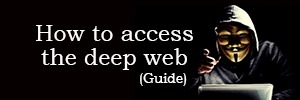
The digital world is an intricate space, where surface-level browsing represents just a fraction of what exists online. Beneath it lies the deep web, a vast, unindexed portion of the internet that includes databases, private networks, and hidden websites. Further still is the darknet, a segment of the deep web that is deliberately hidden and often associated with anonymous activities. Understanding these spaces is crucial for cybersecurity professionals, ethical hackers, and anyone concerned with digital privacy. This article explores deep web links, darknet links, cybersecurity threats, and the role of ethical hacking in safeguarding online spaces.
Understanding the Deep Web and Darknet
The deep web consists of any content that is not indexed by standard search engines like Google or Bing. This includes password-protected sites, academic databases, corporate intranets, and government resources. It is estimated that the deep web is hundreds of times larger than the surface web.
The darknet, a subset of the deep web, requires specific software like Tor (The Onion Router) or I2P (Invisible Internet Project) to access. Darknet links are not accessible through traditional browsers and often use .onion or .i2p domain extensions. While these hidden layers of the internet facilitate privacy and anonymity, they are also used for illicit activities, making them a focal point for cybersecurity concerns.
Cybersecurity Risks on the Dark Web
While the deep web is primarily composed of benign resources, the darknet links harbors a mix of legal and illegal activities. Cybersecurity threats on the darknet include:
- Malware Distribution – Hackers use darknet forums to sell and distribute ransomware, trojans, and spyware.
- Data Breaches – Stolen personal data, including credit card details and login credentials, are frequently traded on darknet markets.
- Hacking Services – Some darknet marketplaces offer hacking-for-hire services, including DDoS attacks and phishing campaigns.
- Cryptocurrency Fraud – Due to the anonymity of cryptocurrency transactions, scams and illegal exchanges thrive on the darknet.
Ethical Hacking: A Defensive Approach
Ethical hacking plays a vital role in mitigating cybersecurity threats. Ethical hackers, also known as white-hat hackers, use their expertise to test and strengthen security systems. Their work includes:
- Penetration Testing – Identifying vulnerabilities in networks, websites, and applications to prevent exploitation by malicious actors.
- Darknet Monitoring – Tracking cyber threats, stolen data, and emerging risks from darknet sources to protect organizations.
- Incident Response – Investigating cyberattacks and mitigating the damage caused by security breaches.
- Security Awareness Training – Educating businesses and individuals on best practices for cybersecurity to reduce risks.
Accessing the Deep Web and Darknet Ethically
Using deep web links and darknet links is not inherently illegal, but ethical considerations must be taken into account. Cybersecurity professionals and researchers access these spaces to monitor threats and gather intelligence legally. Ethical guidelines for exploring the darknet include:
- Avoiding Illegal Activities – Never engage in transactions or interactions related to illicit goods or services.
- Using Secure Networks – Employ VPNs, encrypted connections, and sandbox environments to ensure safety while exploring darknet sites.
- Legal Compliance – Always operate within the legal framework of your jurisdiction when conducting cybersecurity research.
Conclusion
The Deep website and darknet are complex digital realms that offer both benefits and risks. While deep web links provide access to legitimate, unindexed resources, darknet links present cybersecurity challenges that require vigilance. Ethical hacking plays a crucial role in protecting digital environments by identifying threats, securing networks, and enhancing cybersecurity measures. By understanding these hidden layers of the internet, individuals and businesses can navigate online spaces more safely and responsibly.



